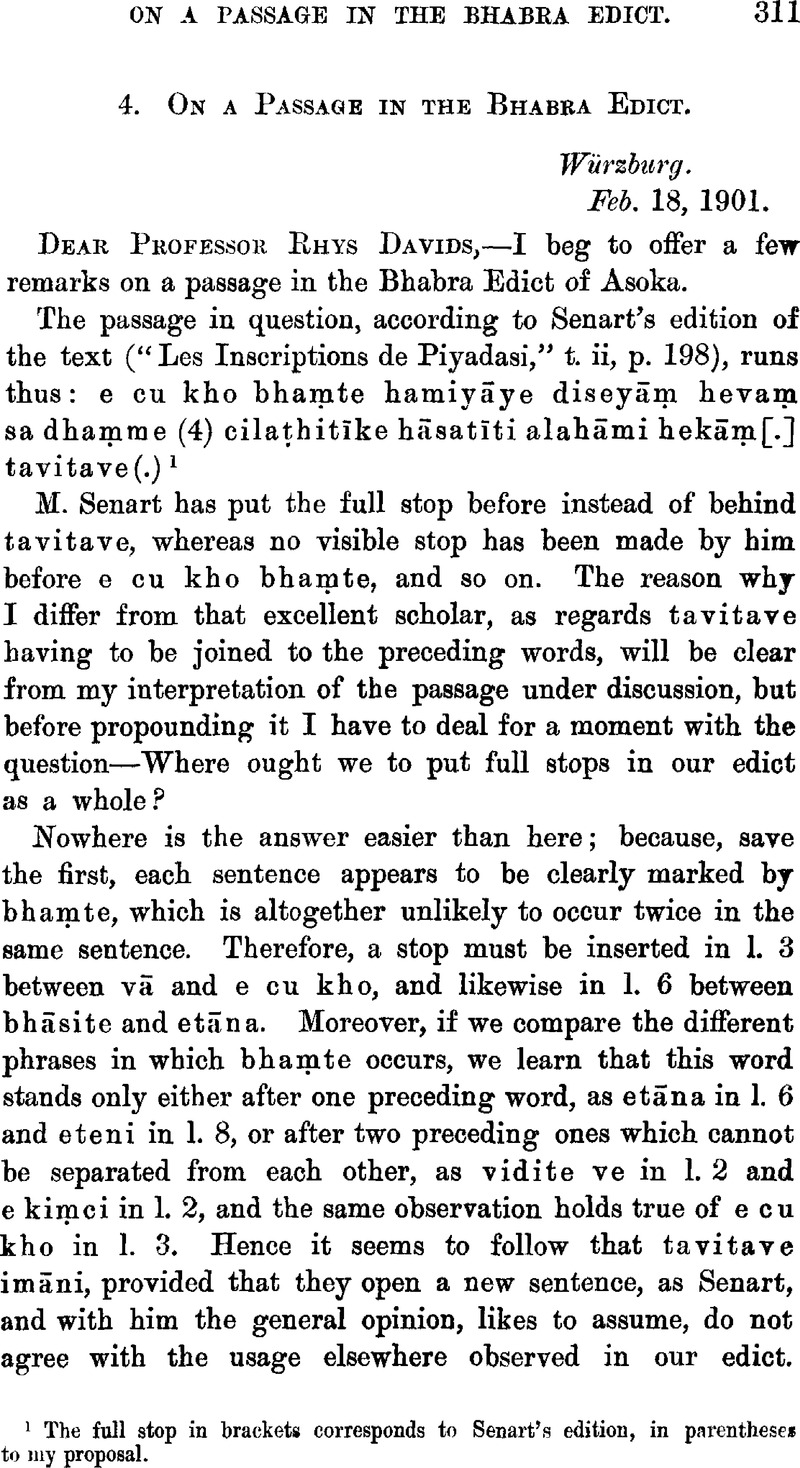No CrossRef data available.
Published online by Cambridge University Press: 15 March 2011

page 311 note 1 The full stop in brackets corresponds to Senart's edition, in parentheses to my proposal.
page 313 note 1 I mean Aṅguttara, vol. v, p. 191 : Yañ ca khvāssa gahapati tapaṃ tapato akusalā dhammā parihāyanti, kusalā dhammā abhivaḍḍhanti, evarūpaṃ tapaṃ tapitabban ti vadāma.
page 313 note 2 Ime ca Mahāli dasa dhammā loke na saṃvijjeyyuṃ, na yidha paññāyetha : adhammacariyā visamacariyā ti vā dhammacariyā samacariyā ti vā. The reading ca is warranted by the good Mandalay MS., also by the Phayre MS., against kho in the Sinhalese MSS. and the Siamese edition.
page 314 note 1 I know no passage where the personal pronoun in the instr. oecurs connected with the verb in the active, but I see no reason to object to such a connection. Moreover, we have to supply after deseyyaṃ an acc. of the object, e.g. ekaṃ (sc. subhāsitaṃ).